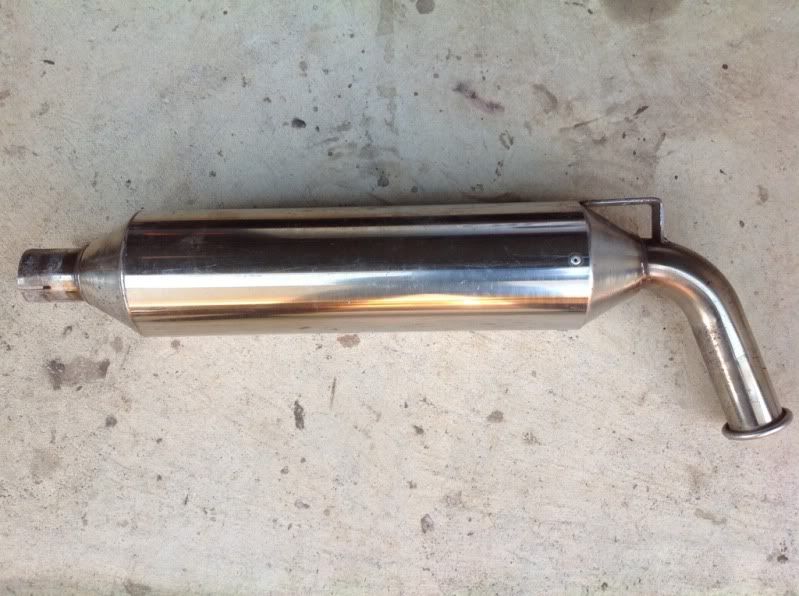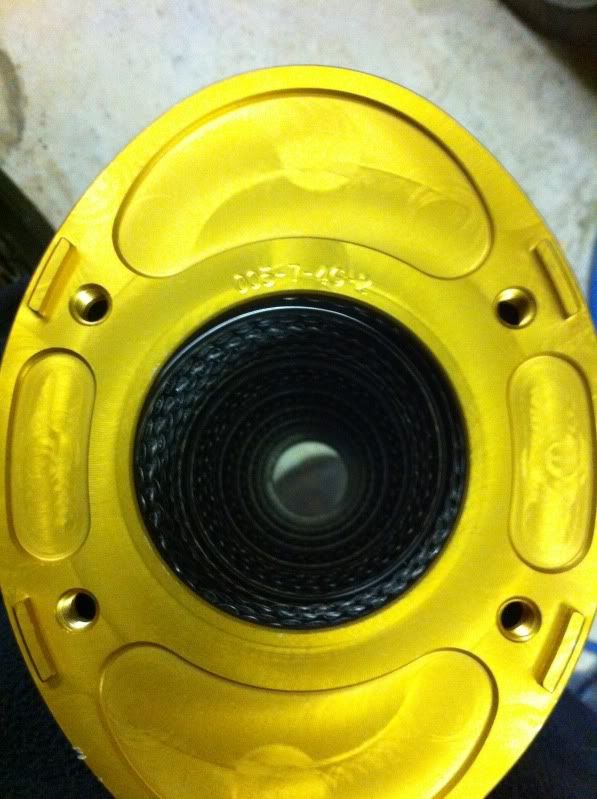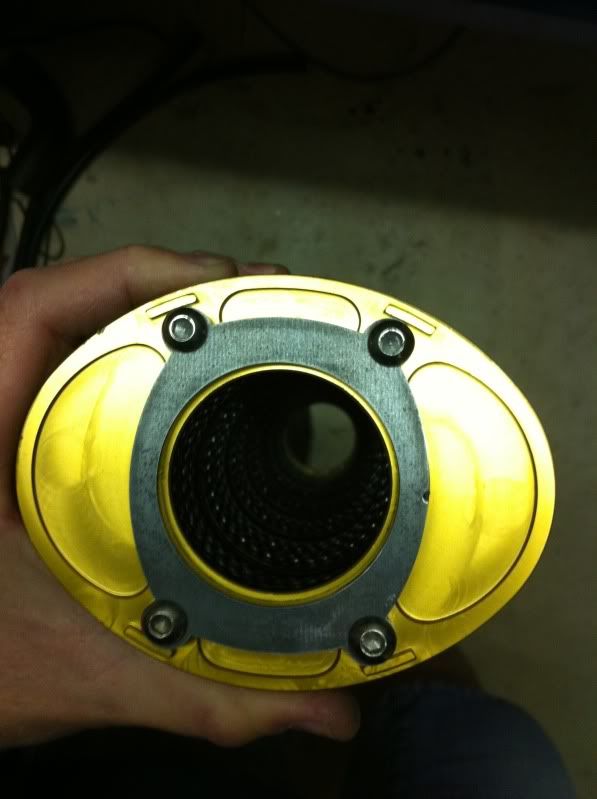DANMAN
|
| posted on 28/7/13 at 07:50 AM |

|
|
Should I have my BEC dyno tuned after changing to a new muffler?
I have just changed my existing muffler to a two brothers titanium type and I have noticed that their are pops and crackles on the over-run that I
don't believe where there before which I believe is an indication of a lean mixture? The car seems to accelerate better than before which I
didn't expect to be honest but I am paranoid that the mixture may be out and it could be running lean. Any thoughts?
Daily Driver - Audi A4 2L Turbo Quattro
Work Horse - Falcon XR8 Ute - Now Supercharged!
Rally Beast - 1972 Ford Escort 2L
Off The Road - Locost 2L Turbo (Z1 Concept)
Track Car - Stuart Taylor Blade
|
|
|
|
|
daniel mason
|
| posted on 28/7/13 at 08:00 AM |

|
|
im always confused by this too as id have thought the pops and bangs were un-burned fuel as result of over fuelling?
|
|
|
omega0684
|
| posted on 28/7/13 at 08:20 AM |

|
|
IMHO, I would, if you think about the different characteristics of the exhaust system, the variance in restrictity of different systems would cause
the engine to change character. Ideally you want the system to be as free flowing as possible, with minimal/no back pressure, you want to promote as
much scavenging from the cylinder as possible so that when the exhaust valve opens the charge is sucked into the exhaust pipe. if you have a cam with
large amounts of overlap what you don't want happening is the exhaust gases going back into the inlet increasing inlet charge temperatures, a
good exhaust system will even pull the inlet charge in quicker by increasing inlet air flow velocities. (Slightly off topic)
If the engine has already been dyno'd a tweaking session shouldn't be expensive.
I love Pinto's, even if i did get mine from P&O!
|
|
|
olimarler
|
| posted on 28/7/13 at 08:34 AM |

|
|
quote:
Originally posted by daniel mason
im always confused by this too as id have thought the pops and bangs were un-burned fuel as result of over fuelling?
That's what I've always believed! I'm confused too! When I had my mr2 turbo when it was over fuelling it cracked and spat.
But does a motorbike go on a rolling road when it has its exhaust muffler changed ?
Cause I see a lot change there exhausts and can't imagine they all go on.
Oli
|
|
|
DANMAN
|
| posted on 28/7/13 at 09:08 AM |

|
|
The biggest problem is there are only a handful of road registered BECs in Oz (seriously, there are maybe ten) and due to this there isn't a
great deal of tuners around to work on carbed engines, well there is but they are motorcycle tuners who only have a motorcycle dyno. I might give my
engine tuner who has done all my other cars a ring and see if he has had anything to do with bike carb tuning. I used a carb balancer a while ago to
balance the carbs and a colourtune to do a basic check of the mixtures through the revs but this wasn't under load which would be a different
story.
Daily Driver - Audi A4 2L Turbo Quattro
Work Horse - Falcon XR8 Ute - Now Supercharged!
Rally Beast - 1972 Ford Escort 2L
Off The Road - Locost 2L Turbo (Z1 Concept)
Track Car - Stuart Taylor Blade
|
|
|
matt_gsxr
|
| posted on 28/7/13 at 10:16 AM |

|
|
Hey there,
Why not fit a wideband AFR and datalog from it?
Then you will know whether it is lean or rich and can tweak the needles (up probably) based on that.
Generally AFR with gauge is < £200, and for dataloging you could just use a video camera (as long as it can see the tacho and the AFR).
Regarding pops and bangs in the exhaust I am with the OP. You need fuel, air and heat. Under load you generally overfuel (AFR ~13 versus AFR 14.7
which is stoichiometric i.e. no spare fuel) so there is often some residual fuel in the exhaust, so if on the over-run you have too little fuel then
this provides the essential air for the explosions. If you just get flames from the end of the exhaust (not flames fired out the exhaust) then that
means it is air outside the exhaust being burned and doesn't give the same popping sound. In practice reducing the fueling on the over-run
definitely does give you popping.
|
|
|
DANMAN
|
| posted on 28/7/13 at 11:19 AM |

|
|
I have been pondering and the only other thing that has changed besides the muffler is the flange the muffler bolts to. My old muffler has a 2"
pipe welded to the end of it that slips over the pipe from the collector and is tightened up with a hose clamp:

The new one however has a flange that I have welded a piece of 2" pipe into and it slips over the collector pipe:



As it is the weekend and all the good auto joints are closed I haven't been able to get a sheet of exhaust gasket to make up a new gasket (or
some exhaust gasket goop) so it obviously isn't sealed as well as it should be between the flange and the muffler, so I'm wondering if it
may be drawing air in through this flange joint and that is causing the popping? Is this a possible scenario or is it just wishful thinking?
[Edited on 28/7/13 by DANMAN]
Daily Driver - Audi A4 2L Turbo Quattro
Work Horse - Falcon XR8 Ute - Now Supercharged!
Rally Beast - 1972 Ford Escort 2L
Off The Road - Locost 2L Turbo (Z1 Concept)
Track Car - Stuart Taylor Blade
|
|
|
matt_gsxr
|
| posted on 28/7/13 at 11:47 AM |

|
|
Leaking exhaust might do it. I know people have seen incorrect AFR measurements from this phenomenon, so that air has the opportunity to be the
source of the bangs.
I don't think you need to worry about a few pops really in itself as at those low throttle openings/over run there is so little fuel going in to
the engine that you can't do any damage. The concern must be what the fueling is doing at high throttle openings when incorrect fueling can
cause some proper damage.
|
|
|













